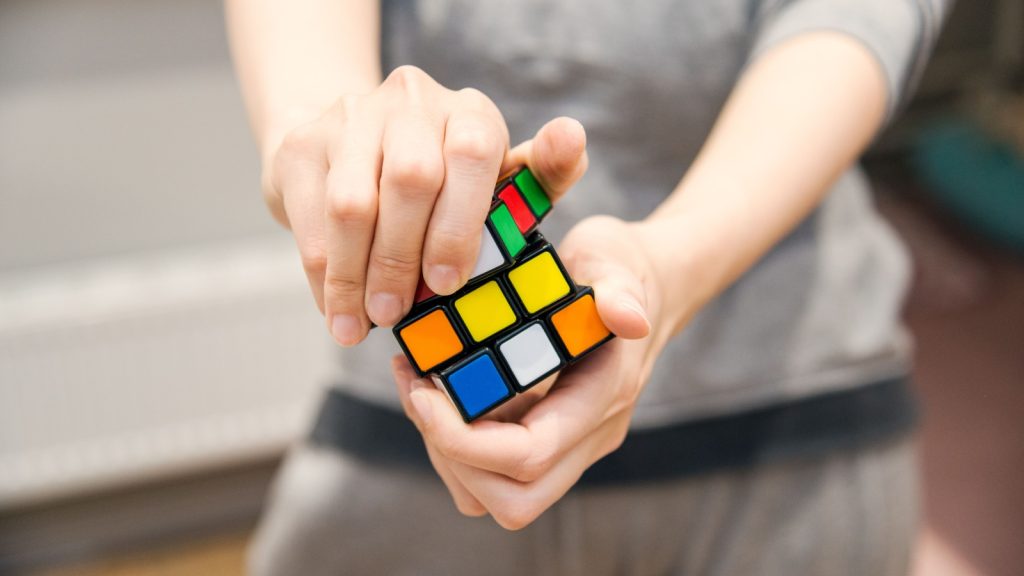Puzzle games have been around for centuries, from ancient riddles to modern digital brain-teasers. These games do more than just entertain; they shape our thinking and influence our cognitive processes in fascinating ways. As we piece together jigsaw puzzles or solve complex logic problems, our brains undergo subtle yet significant changes. The effects go beyond mere problem-solving skills, touching on aspects of memory, perception, and even emotional well-being. Delving into the psychological impact of puzzle games reveals a world of cognitive benefits that might surprise even the most dedicated puzzle enthusiasts.
Enhanced Problem-Solving Skills

Regular puzzle-solving hones our ability to tackle challenges in creative ways. As we encounter various puzzle types, our brains learn to approach problems from different angles. This improved problem-solving ability often carries over into real-life situations, helping us navigate complex issues with greater ease and innovation. Research has shown that people who regularly engage in puzzle-solving activities demonstrate superior performance in tasks requiring analytical thinking and strategic planning.
Improved Working Memory

Puzzle games give our working memory a serious workout. As we juggle multiple pieces of information to solve a puzzle, we’re training our brains to hold and manipulate data more effectively. This enhanced working memory can lead to better performance in tasks requiring concentration and multitasking. Studies have found that consistent puzzle game play can increase working memory capacity by up to 50% in some individuals.
Increased Dopamine Production

Solving puzzles triggers a release of dopamine in the brain. This “feel-good” neurotransmitter not only makes us feel satisfied but also motivates us to keep playing. The dopamine boost can create a positive feedback loop, encouraging continued engagement with puzzles and potentially improving mood. This natural reward system can be particularly beneficial for individuals struggling with motivation or mild depression.
Enhanced Pattern Recognition

Many puzzle games rely on identifying patterns, whether visual, numerical, or logical. Regular exposure to these games sharpens our ability to spot patterns in various contexts. This improved pattern recognition can be beneficial in fields ranging from data analysis to creative problem-solving. Neuroimaging studies have shown increased activity in brain regions associated with pattern recognition among frequent puzzle players.
Boosted Cognitive Flexibility

Switching between different types of puzzles encourages cognitive flexibility. Our brains learn to adapt quickly to new rule sets and problem structures. This mental agility can translate into real-world benefits, helping us adjust more easily to changing circumstances and novel challenges. Research indicates that individuals with higher cognitive flexibility are better equipped to handle stress and are more resilient in the face of adversity.
Increased Attention to Detail

Puzzle games often require careful observation of small details. This focus on minutiae can carry over into other areas of life, improving our overall attention to detail. From proofreading documents to noticing subtle cues in social interactions, this heightened awareness can be a valuable skill. Studies have shown that regular puzzle players perform better on tasks requiring visual discrimination and attention to detail.
Stress Reduction

Engaging with puzzles can serve as a form of meditation, providing a focused activity that distracts from daily stressors. The concentration required for puzzle-solving can induce a state of flow, where worries fade into the background. This stress-relieving effect can contribute to better mental health and relaxation. Research has found that puzzle-solving activities can lower cortisol levels, a hormone associated with stress.
Enhanced Visual-Spatial Reasoning

Puzzles that involve manipulating shapes or navigating spatial relationships can significantly improve visual-spatial reasoning. This skill is crucial for tasks like reading maps, arranging furniture, or even parking a car. Regular puzzle play can lead to noticeable improvements in these real-world spatial tasks. Studies have shown that children who engage in spatial puzzles from a young age tend to perform better in STEM fields later in life.
Increased Persistence

Challenging puzzles teach us to persevere in the face of difficulty. As we work through complex problems, we develop greater patience and determination. This increased persistence can be a valuable trait in many areas of life, from academic pursuits to professional challenges. Research has linked puzzle-solving habits to higher levels of grit and resilience in both children and adults.
Improved Critical Thinking

Puzzle games encourage analytical thinking and logical reasoning. As we evaluate different strategies and eliminate incorrect solutions, we’re honing our critical thinking skills. This improved ability to analyze situations objectively can lead to better decision-making in various aspects of life. Studies have shown that regular engagement with logic puzzles can enhance performance on standardized tests that measure critical thinking abilities.
Enhanced Cognitive Reserve

Regular puzzle-solving may contribute to building cognitive reserve, the brain’s resilience to damage or decline. This increased reserve could potentially delay the onset of age-related cognitive decline and provide some protection against conditions like dementia. Longitudinal studies have found that individuals who regularly engage in mentally stimulating activities like puzzle-solving have a lower risk of developing Alzheimer’s disease.
Boosted Self-Esteem

Successfully solving puzzles provides a sense of achievement, which can boost self-esteem and confidence. These small victories accumulate over time, potentially leading to a more positive self-image and increased belief in one’s problem-solving abilities. Psychological research has demonstrated that the sense of mastery gained from puzzle-solving can generalize to other areas of life, improving overall self-efficacy.
21 Things Pilots Are Forbidden to Do During Flights

Have you ever wondered what rules pilots must follow while they’re in the cockpit? Being a pilot is a job that comes with a lot of responsibility and a strict set of rules to ensure the safety of everyone on board.
These rules ensure that pilots maintain the highest standards of safety and professionalism while flying. By adhering to these guidelines, they help ensure that every flight reaches its destination safely.
Read More: 21 Things Pilots Are Forbidden to Do During Flights
Katy Willis is a writer, master herbalist, master gardener, and certified canine nutritionist who has been writing since 2002. She’s finds joy in learning new and interesting things, and finds history, science, and nature endlessly fascinating.

